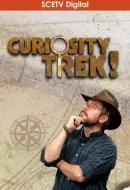Datacasting is a term derived from ‘data’ and ‘broadcasting’.
The technology converts a portion of the broadcast signal to offer a one-way transmission of encrypted IP data. Datacasting offers the same coverage as terrestrial signals and utilizes an existing network infrastructure. South Carolina is the first in the nation to pioneer this concept.
SCETV offers two types of datacasting solutions – customized student and parent education applications and community partner kiosks with content curated for that partner’s specific needs.
- What is Datacasting?
Datacasting is a technology that uses part of a television broadcast signal to send a one-way transmission of encrypted data.
Data rides on SCETV’s broadcast signal to deliver information, images, audio, video and more using ETV’s existing television statewide network. Although the concept of datacasting has been around for many years, the idea of using the technology for education was a new one. South Carolina was the first in the nation to pioneer this concept.
South Carolina ETV uses datacasting to continue to help combat the digital divide by providing instructional content and resources to students and community partners in South Carolina that have little or no Internet access. Our goal is to create a personalized learning experience for those that would not otherwise have access to a host of online resources.
- Student and Parent Education Applications
Datacasting provides students and educators, who do not have broadband internet access, with the same instructional content and educational resources that would normally require an Internet connection.
Datacasting provides a safe and secure, one-way transmission of content. It provides students at home, access to customized lessons and instructional activities assigned by their teacher(s). This allows students to receive educational materials sent specifically to them.
This ETV service is FREE. In order to receive files via datacasting, a household needs a WiFi enabled device (cell phone, computer, tablet, etc.), as well as the provided antenna and receiver. No internet access is required. Any type of file (jpg, PDF, mp4, etc.) can be transmitted using datacasting. This means that the possibilities of creating and packaging content designed for instruction are limitless.
- Datacast Kiosks
SCETV works with community partners to curate and package content specifically for that partner’s needs. Instead of sending instructional resources targeted to an individual, ETV’s datacasting kiosks allow curated educational resources to be sent to a specific device at a location where multiple users can access media assets to include data, videos, documents, and interactives.
This ETV service is FREE. In order to receive files via datacasting, a community partner uses a provided antenna and receiver. The kiosk datacast receiver acts as an internet hotspot and a WiFi enabled device such as a tablet can receive files curated specifically for that partner. Additionally, an HDMI capable monitor or television can connect directly to the receiver to display a collection of informative and instructional materials.
Community partners using the kiosk datacasting feature can provide access to digital resources from a single device - no logins, passwords, or personal information required. For example, students using a tablet simply choose their grade level on the screen, and age-appropriate content appears. A partner can also use a monitor to display a datacast carousel of digital images, video, infographics, etc.
To find out more about SCETV’s datacasting service, contact etveducation@scetv.org.

